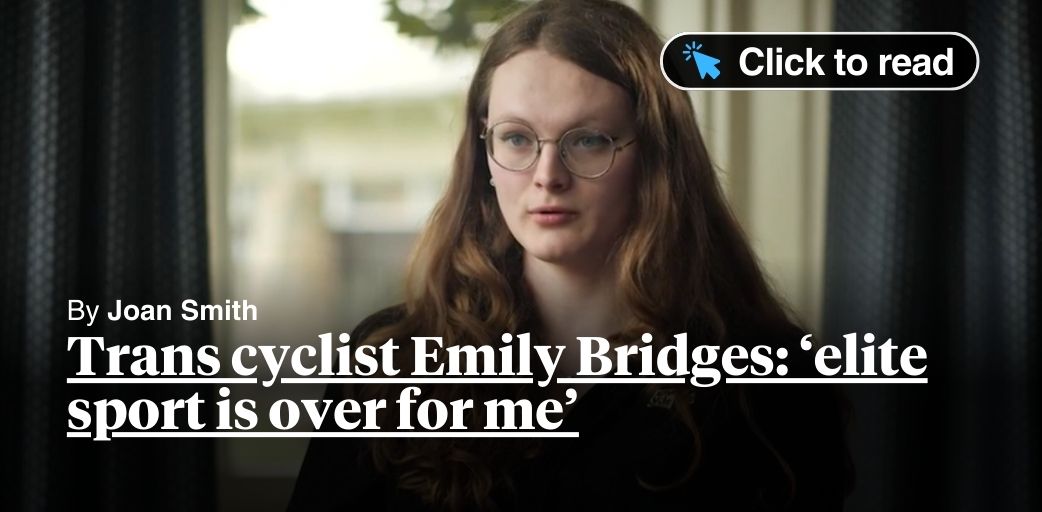
Reality matters. No one is trying to ban trans women from sport at any level, from the Olympics to school sports days. All they’ve been told to do by some governing bodies is compete in the correct category for their sex. Yet trans athletes keep saying they’ve been excluded, claiming they’ve been banned from their chosen sport.
In the US, the male-bodied swimmer Lia Thomas is taking legal action in an attempt to be allowed to compete against women. In the UK, the cyclist Emily Bridges is threatening to do the same after British Cycling restricted entry to the female category to women.
“Elite sport is over for me” is the headline ITV News has used for an interview with Bridges. “If we were allowed to compete, if I was allowed to compete, it would be a different conversation,” he claims, “but I can’t compete […] I can’t do something I used to love.’
Bridges is 6’2”, was born male and went through male puberty. Like Thomas, he towers over female athletes and his voice in interviews is that of a young man. He could go on racing for years if he were willing to compete in the male or “open” category, a point made by ITV’s sports editor, Steve Scott.
Scott’s challenge goes to the heart of the matter, exposing the fact that there is no ban on trans athletes. But they want validation of their claimed gender identity, and they won’t get that in the “open” category.
Unsurprisingly, Bridges has no answer to Scott’s question, appearing lost for words. “Would it be safe for me to compete in an open category?” he asks after a long pause. The answer is obviously yes, but trans athletes are not used to having their hyperbolic claims called out like this.
The people who are at risk are girls and women who find themselves competing against individuals who are bigger, stronger and have greater muscle mass. Injuries have been reported in football and basketball after women found themselves playing against teams which included male-bodied trans women. Female athletes are also losing medals to trans-identified males.
Bridges is now making even more absurd statements, however, such as the notion that protecting the female category in sport “has normalised the exclusion of trans people from public life”. He claims it’s made it “easier to ban us from toilets, easier to ban our healthcare […] and our ability to go out in public’.
None of this is happening. Trans people are simply expected to observe boundaries put in place to protect women from men’s greater physical strength and male violence. These expectations are so reasonable that they weren’t even questioned until some men decided they were women, and started trying to take over single-sex spaces and categories.
Obviously they don’t want to admit this, so they’ve played the victim card instead. “You leave the house and you’re thinking, am I going to come home?” Bridges suggests at the end of his latest interview.
It’s a thought most women have had at some point in their lives, with much greater justification. But women’s safety is the last thing on the minds of activists who think they should be able to do exactly what they like.



